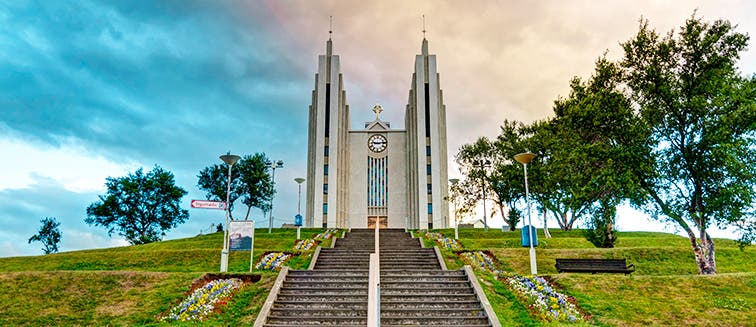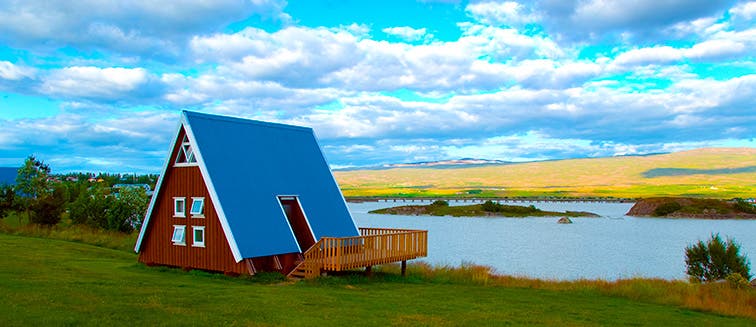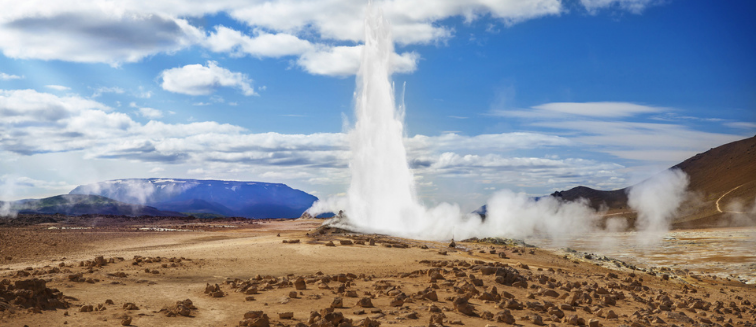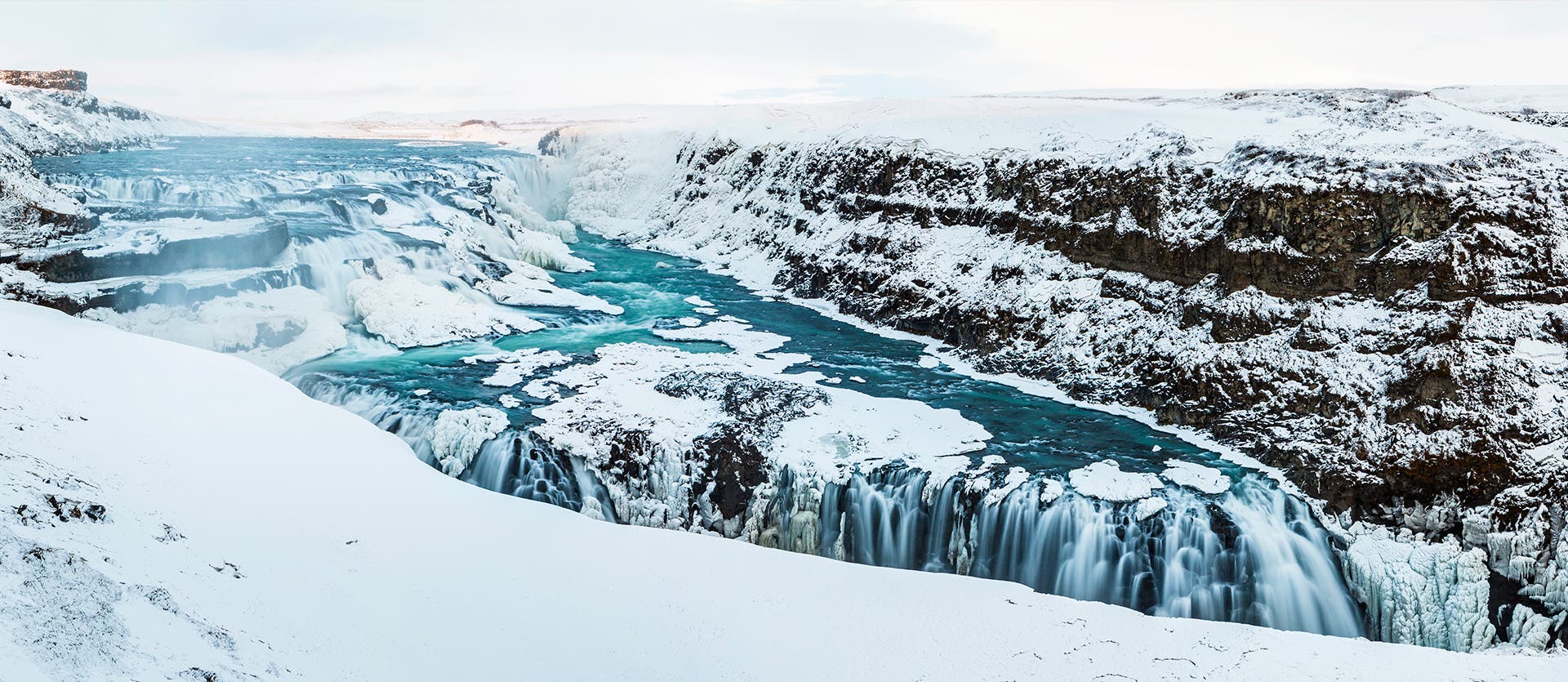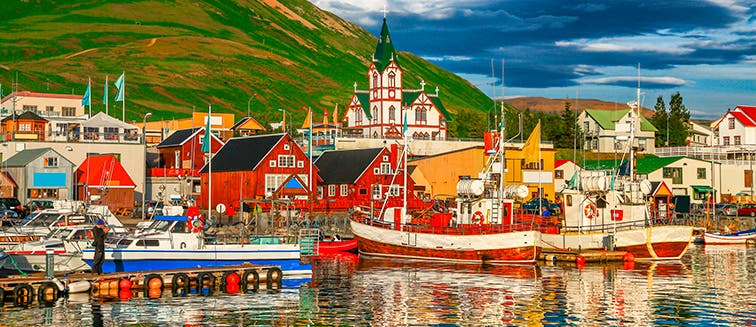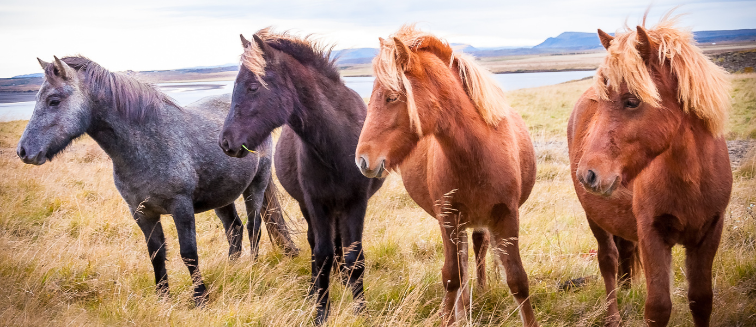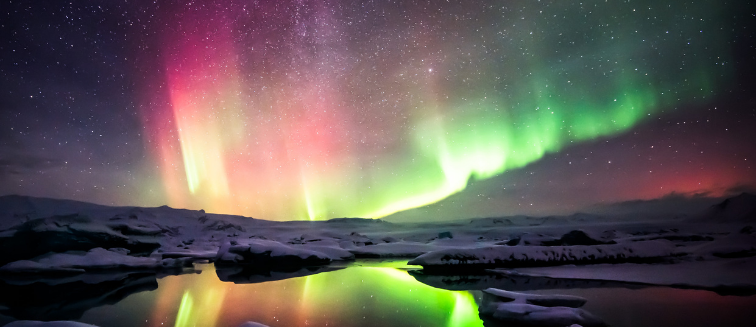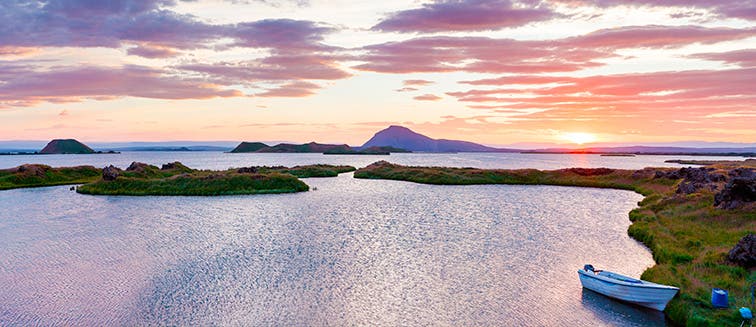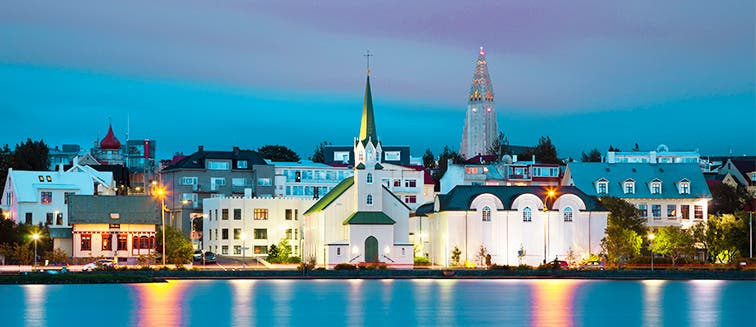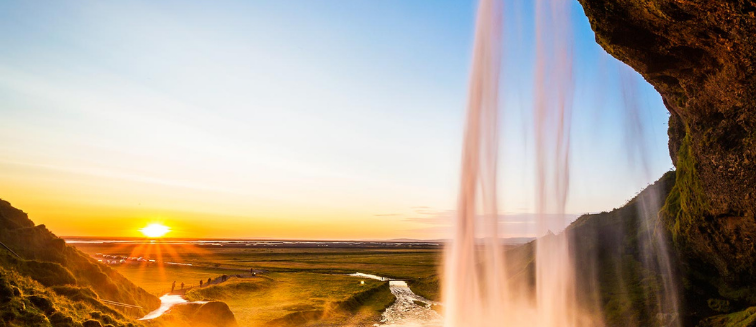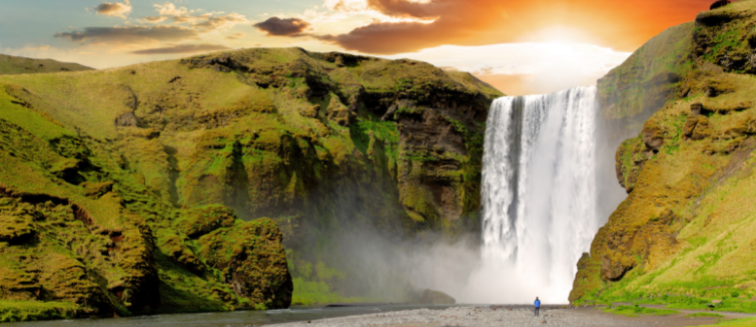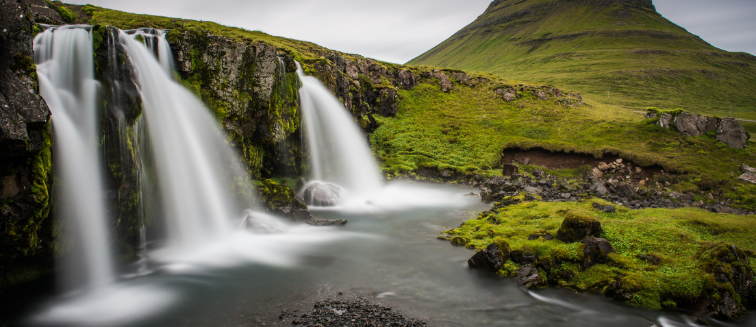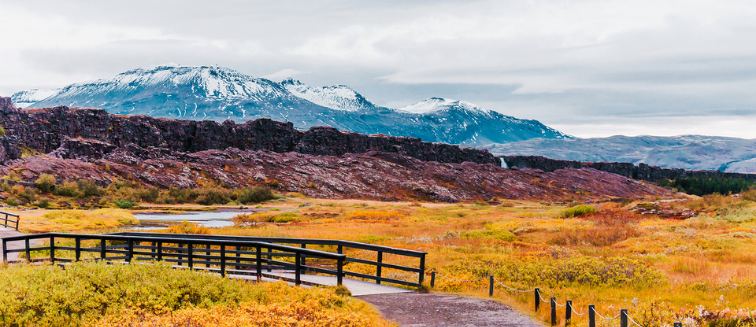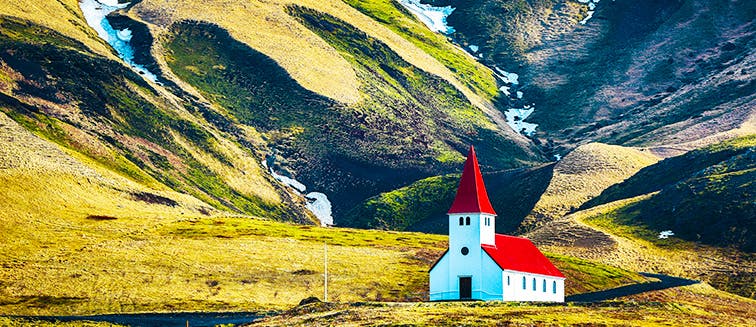A Nordic nation located in the North Atlantic, Iceland is a sparsely populated country famed for its abundance of epic landscapes which feature glaciers, geysers, waterfalls, active volcanos, and lava fields. Known as the Land of Ice and Fire, thanks to its geothermal activity, the country’s isolated location has not affected its cultural wealth and in fact, has fostered a vibrant and unique cultural scene and a prosperous nation.
The majority of the population are concentrated in the southwest corner of the island, where the capital city, Reykjavik is located, the northernmost capital city in the world. A tour of Iceland is the best way to experience the vast landscapes and more underdeveloped parts of the country, away from the popular city.
Many are drawn to Iceland for the unique natural phenomenon of the Northern Lights or to bathe in the warming thermal waters of the Blue Lagoon. A holiday to Iceland is sure to ignite your love of untamed nature and open your eyes to a beautiful country, which has thrived despite its secluded location.
History of Iceland
The island of Iceland was first settled in 847 AD by Norse communities, who, over the following centuries, continued to build communities on the island, along with other Scandinavian settlers. The country spent much of its history under Norwegian and Scandinavian rule and, on a trip to Iceland, you are sure to notice the influence this has left on the culture and traditions of the country.
In the late 14th century, the country was unified with the kingdoms of Denmark, Norway and Sweden in the Kalmar Union. Under foreign rule, Iceland saw many years of hardship, from the Black Death to the turbulence of the Reformation and extreme weather, which often caused starvation and suffering as Norwegian merchant ships carrying precious supplies could not reach communities due to frozen fjords and icebergs. The 18th-century eruptions of the Katla and Laki volcanos devastated much of the country with toxic ash, lava and floods. It was not until the 20th-century that things began to look up for the island as a period of home rule, followed by sovereignty and eventually complete independence in 1944 saw progress in economic and social spheres.
The post-World War II period was a turning point for Iceland as its prospects transformed completely. Industrialised fisheries and membership to the European Economic Area lifted the country out of poverty and subsistence farming and within a short space of time the country made huge developments. Today, it is thought to be one of the wealthiest countries in the world, known for its technology and high standard of living.
Iceland runs almost entirely on renewable energy, has the worlds highest median wealth per adult and is also considered the most peaceful country on earth. It has no standing army and gender-based pay inequality is illegal, proof of the countries dedication to equality, peace and freedom. A tour to Iceland will open your eyes to a progressive, friendly and open society, who despite centuries of isolation and struggle, have built a truly successful and admirable nation.
Nature in Iceland
Above all, a holiday to Iceland is the first choice for nature lovers. The island is home to such a wide array of natural wonders that it is impossible to leave the country without feeling a sense of awe for the power of mother nature. Many travellers choose Iceland to experience the spectacle of the Northern Lights whose green, blue and purple streaks dance across the night sky between late August to mid-April.
It is unlikely to see the light show in the summer months when daylight hours are long. The further north you travel, the more likely you are to catch sight of the phenomenon, although darkness, low levels of light pollution and clear skies are the three main factors which will determine your chances of witnessing the Northern Lights. Northern Lights tours, with professional meteorologists, are also a safe bet for hunting down the elusive natural attraction.
Another highlight of Iceland’s natural environment is its many impressive waterfalls, such as the Skógafoss, Goðafoss, Seljalandsfoss, Háifoss and Svartifoss which are among the most popular and are largely concentrated in the southern part of the country. If the soothing sound of waterfalls makes you want to kick back and relax, the iconic geothermal Blue Lagoon is perhaps one of the countries most popular tourist attractions, welcoming visitors to bathe in its steamy waters, surrounded by a snowy landscape.
Iceland has a mostly subarctic climate, lying just outside of the Arctic Circle. It often sees sub-zero temperatures in the winter and has mild summers, so as long as you are prepared for the cold, a trip to Iceland is suitable any time of year. The unique geology of the island is characterised by its volcanic nature. It is home to 30 active volcanic systems and its most famous and active volcano is Hekla, which last erupted in the year 2000. Geysers, springs which periodically erupt with hot water, are another of Iceland’s rare natural phenomenon, and a prime tourist attraction.
The Strokkur Geyser, which erupts as frequently as every 10 minutes, propelling steam and hot water into the air, is the country’s most popular. Wildlife is another element of Iceland’s natural attractions that cannot be missed. Its only native land mammal is the Arctic Fox, but you can also find reindeer, rabbits and the famous wild Icelandic horses, roaming freely in the wilderness of the interior. The occasional polar bear has also been sighted on the mainland, arriving on floating icebergs from Greenland.
Culture in Iceland
Iceland has a unique and rich culture, focused strongly on the country’s Scandinavian heritage. The country’s isolated location has ensured that its culture has preserved its own traditions and originality away from outside influences. Much of the population is descended from Gaelic and Norse settlers, and the Icelandic language is closely linked to Old Norse and has retained a number of unique runic letters, not seen in any other modern language.
Medieval sagas are still a prominent feature in Icelandic culture; stories and literature about the island's history, particularly the era between the 9th and 11th centuries, are passed down through the generations. Folk dance remains an important component, with a number of active dance ensembles committed to keeping the tradition alive. In Reykjavik, there are numerous cultural institutions, from professional theatres to an opera house and a large number of art galleries, bookstores, cinemas, and museums.
Visitors on holiday in Iceland will find no shortage of both modern and traditional cultural attractions. A further point to note about the culture of Iceland is the importance of community to the inhabitants. Due to its small population and geographical isolation, there is a huge focus on community and helping each other. It is not unusual for locals to strike up conversations with visitors and the country is also famed for its egalitarian politics; Iceland is thought to have one of the lowest inequality rates in the world.
Land of ice and fire, a tour of Iceland is a captivating experience, which will charm visitors with its plethora of natural wonders, from volcanos, geysers, and waterfalls, to the dazzling Northern Lights. Travelers can be sure to find respite from the sub-arctic chill of its harsh climate in the bustling capital of Reykjavik and the warm hospitality of the locals.

